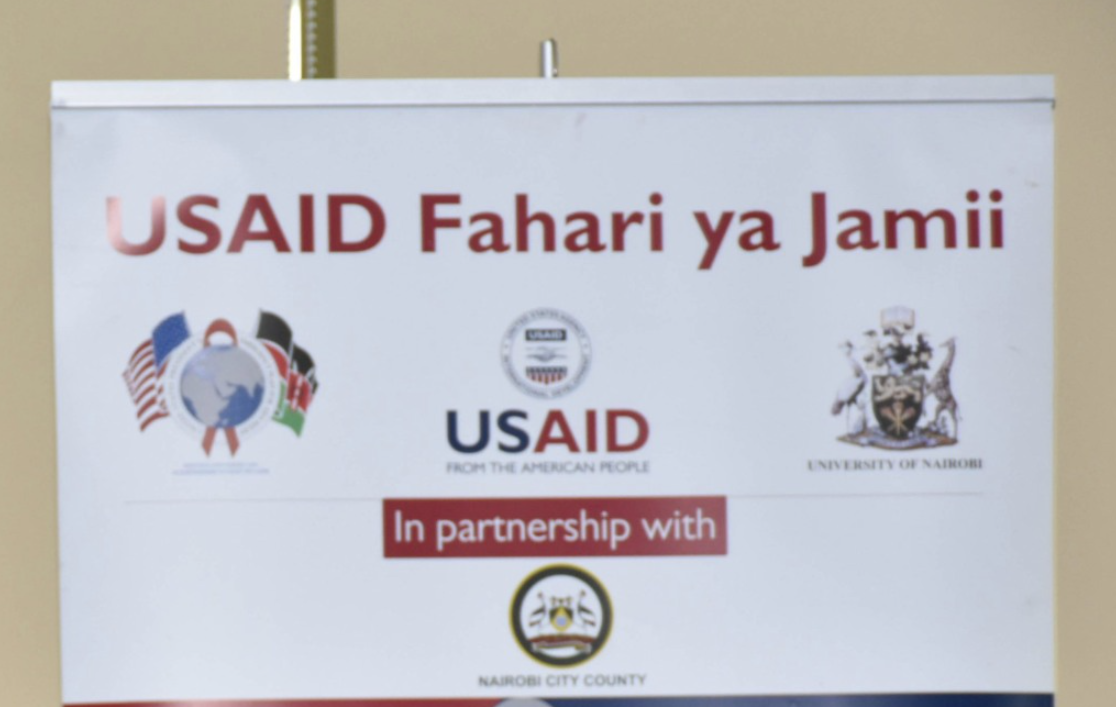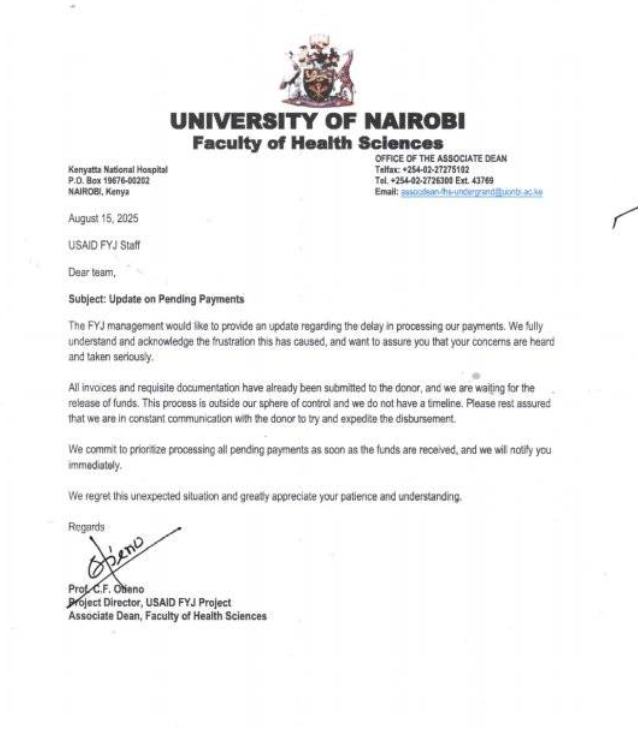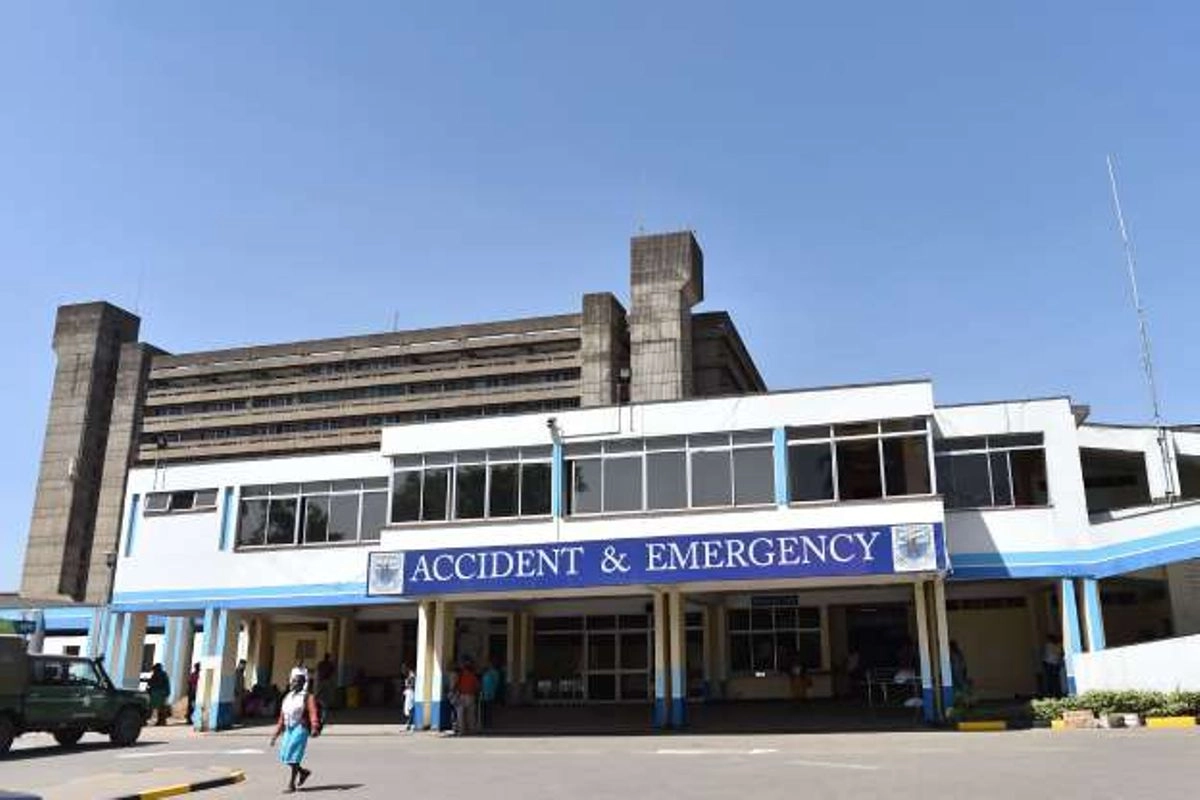Staff under the USAID-funded Fahari Ya Jamii Project remain caught in a prolonged crisis over delayed payments, with frustrations mounting months after initial complaints surfaced in May 2025.

The University of Nairobi, which oversees the project, issued a statement in August 2025 noting that all invoices and supporting documentation have been submitted to the donor, but funds have not yet been released.
The management indicated that the timing of disbursement is beyond their control and promised to prioritize payments once the funds arrive.
This, however, has done little to alleviate the financial strain faced by staff, some of whom have not received full salaries for several months.

The payment delays are layered on top of wider operational and employment challenges.
Staff hired through the sub-awardee HR firm BlumeAfrica have faced abrupt terminations without clear timelines for severance or exit procedures, while University of Nairobi-employed staff have received full dues and short-term contract extensions.
The discrepancy in benefits between the two groups has been stark, with BlumeAfrica staff reporting the loss of basic medical cover and minimal pension contributions, compared with comprehensive coverage for directly employed staff.
The prolonged uncertainty has forced some employees to seek legal guidance and report their situation to the Labour offices.
Staff have described the stress of delayed pay, coupled with longer working hours and unclear contractual obligations, as causing mental fatigue and financial hardship.
In some cases, employees have been unable to meet rent payments, leading to extreme situations where staff have had to sleep at their workplaces.
The lack of clear communication on exit procedures and unpaid dues has intensified feelings of neglect and inequity among those affected.
This situation reflects broader challenges in donor-funded projects that rely on subcontracted staff.
Differences in treatment between direct and subcontracted employees have resulted in unequal access to benefits, delayed financial settlements, and unclear reporting structures.
Staff continue to seek clarity on when payments will be made and demand parity in treatment across all employment levels under the project.
The August 2025 update from FYJ management represents an acknowledgment of the ongoing payment delays, but with no specific timeline or concrete assurances, the uncertainty persists.
The situation has eroded staff confidence and morale, raising questions about project management, operational planning, and the handling of subcontracted labor within donor-supported initiatives.
With months of unresolved payments and inconsistent communication, staff are left navigating financial vulnerability while continuing to deliver essential HIV-related services in Nairobi and Kajiado counties.











































